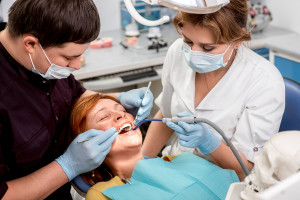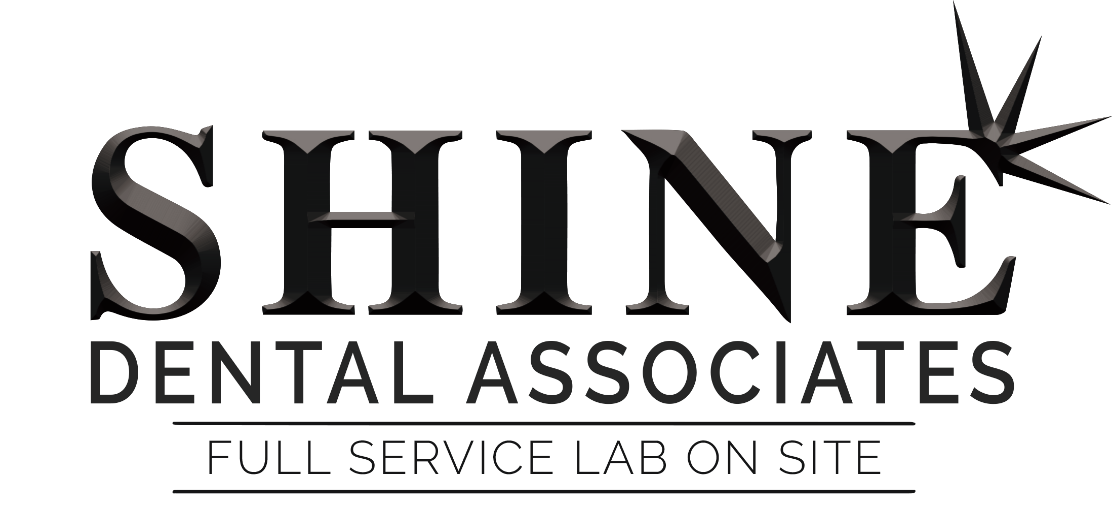 Gingival recession (which is also referred to as receding gums) is when there is progressive gum tissue loss, and that results eventually in the tooth root being exposed if it is allowed to go untreated. Gum recession most commonly occurs in adults over 40 years old. However, this process can start during the teen years.
Gingival recession (which is also referred to as receding gums) is when there is progressive gum tissue loss, and that results eventually in the tooth root being exposed if it is allowed to go untreated. Gum recession most commonly occurs in adults over 40 years old. However, this process can start during the teen years.
During the earlier stages, gum recession may be hard to self-diagnose due to the fact that changes may occur gradually and asymptomatically. Having dental check ups on a regular basis can help with assessing risk factors and preventing gum recession.
The symptoms below might indicate a gum recession problem:
Sensitive teeth – Whenever the gums recede to the point that the cementum is exposed (the part that protects the tooth root), it results in the dentin tubules underneath becoming more susceptible to external stimuli and therefore the teeth are more sensitive.
Visible roots – In more severe gum recession cases, this is one of the major characteristics.
Longer-looking teeth. People who have a gingival recession problem frequently have what is called a “toothy” smile. Their teeth have a normal length, but gum tissue is lost, which makes the teeth look longer.
Bleeding, inflammation, and halitosis – These are some of the main characteristics of periodontal disease or gingivitis. A bacterial infection can cause the gums to start receding from the teeth and might cause tooth loss if it isn’t treated quickly.
Gum Recession Causes
This is a very widespread problem that is diagnosed and treated by dentists every day. It is very important that affected areas are thoroughly examined so that an accurate diagnosis can be made of the real underlying issue. After it has been determined what the gum recession cause is, then non surgical and surgical procedures may be performed in order to stop the recession from progressing any further to to prevent it from happening in the future as well.
Gingival recession is most commonly caused by:
Over aggressive brushing – Brushing too much can be nearly as dangerous to gums as brushing too little. Using a hard-bristle toothbrush or brushing too hard can result in the tooth enamel on the gum line becoming eroded, or the gum tissue may be inflamed or irritated.
Poor oral hygiene – Flossing and brushing are either not done or performed improperly. This can result in plague building up and starting to affect teeth. There are various bacterial toxins contained in plaque which can erode the jawbone underneath and promote infection.
Chewing tobacco – Using any type of tobacco produces devastating effects on the whole oral cavity. In particular, chewing tobacco aggravates the mouth’s gingival lining and if used continuously causes gum recession.
Periodontal disease – This may be causes by diabetes or another systemic disease or from improper hygiene. The ideal environment for the development of oral bacteria is caused by narrowed blood vessels that diabetics experience or from excessive sugars inside of the mouth. An infection causes bacterium which continues to progress deeper into the bone tissue and gum, which will result in tooth loss eventually.
Gum Recession Treatment
Every gum recession case is somewhat different, and therefore there are a number of different types of treatment that are available. The first thing that needs to be addressed is the the problem that initially caused the recession.
If the gums are being eroded by brushing techniques that are too aggressive, then gentler brushing techniques and a softer toothbrush should be used. If the problem is poor oral hygiene, then professional dental cleaning (prophylaxis) might be recommended in order to eliminate gum pockets of bacteria and debris. In cases of serious tartar (calculus) buildup, root planing and scaling will be done in order to clean the teeth and heal any gingival inflammation.
After the gingival recession cause is addressed, your dentist might recommend restorative or cosmetic surgery. Gum grafting and gum tissue regeneration are two great ways that the gum’s natural symmetry can be restored and it can make the smile appear more aesthetically pleasing as well.
If you have any concerns or questions about gum recession, periodontal treatments, periodontal disease, please get in touch with Shine Dental Associates and get your free consultation scheduled with our board certified periodontist.
